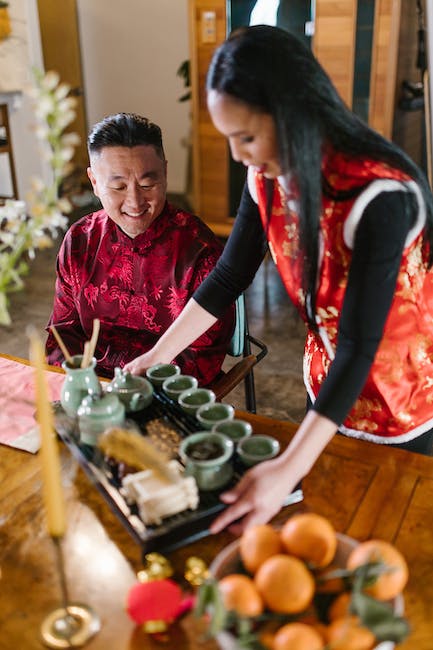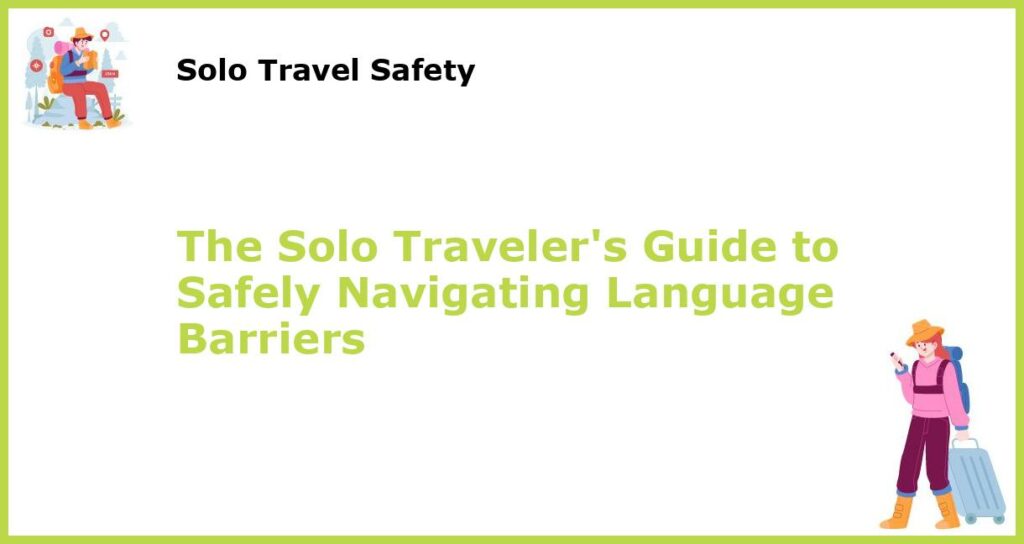Traveling solo can be an exciting and adventurous experience, but it can be challenging to navigate language barriers in a foreign country. However, with a little preparation, patience, and creativity, you can successfully communicate and connect with locals, even if you don’t speak the language fluently. Here are some tips to help you navigate language barriers while traveling solo.
1. Learn some basic phrases

Learning a few basic phrases in the language of the country you are visiting can be incredibly helpful when communicating with locals. Simple greetings like “hello,” “goodbye,” and “thank you” can go a long way in building rapport with locals. Additionally, learning basic phrases like “excuse me,” “please,” and “I’m sorry” can help you navigate daily interactions, such as ordering food or asking for directions.
Before your trip, consider taking a language class or using language learning resources, such as language learning books or apps. By familiarizing yourself with the basics of the local language, you will feel more prepared and confident when communicating with locals.
2. Use body language

Body language can be a powerful tool for communicating, even when language can be a barrier. Simple gestures, such as nodding your head or smiling, can go a long way in expressing gratitude, acknowledging someone, or simply showing that you are listening. Additionally, learning culturally appropriate hand gestures can help you convey more complex ideas, such as directions or expressing emotion.
To best understand the appropriate body language for your destination, consider researching cultural norms and asking locals for advice. Being aware of the appropriate body language can help you avoid miscommunication and connect with locals in a meaningful way.
3. Research the culture

Learning about the customs and norms of the culture you are visiting can help you avoid misunderstandings and show respect for the local culture. For example, in some cultures, it may be considered rude to wear revealing clothing, while in others, it may be customary to remove your shoes upon entering someone’s home. Additionally, learning about the local beliefs and customs can help you avoid taboo subjects that could inadvertently offend someone.
Before traveling, consider researching the culture of the country you plan to visit. Travel guides, blogs, and online forums can be an excellent resource for learning about local customs and expectations. Additionally, speaking with locals can help you gain a deeper understanding of the culture and can help you connect with locals in a more meaningful way.
4. Use technology

Technology has revolutionized travel, making it easier to navigate language barriers than ever before. There are numerous translation apps, language learning resources, and online tools that can help you communicate and connect with locals.
One popular app is Google Translate, which can translate text, speech, and images in over 100 languages. Additionally, language-learning resources such as Duolingo can help you learn basic phrases, and online forums can connect you with local language tutors who can help you improve your skills.
5. Stay calm and patient

It can be intimidating and frustrating when you cannot speak the language of the country you are visiting. However, remaining calm and patient can help you communicate more effectively. Speak slowly and clearly while using gestures and visual aids to help convey your message.
If you feel yourself becoming frustrated, take a moment to breathe deeply and try to approach the situation with a positive attitude. Remember that most people appreciate when you make an effort to communicate in their language, and showing respect and appreciation can go a long way in building a positive connection with locals.
6. Use visual aids

If spoken language proves challenging, visual aids like maps, pictures, and menus can help bridge the communication gap. Point to what you need, use images or icons to convey your message, or write down your request or question.
Visual aids can be particularly helpful when communicating about food or transportation. Consider carrying a pocket-sized map or a menu card from a restaurant that you can show to locals.
7. Find a local guide

If you are struggling to communicate or navigate cultural differences, consider hiring a local guide. A guide can help provide translation services, cultural insights, and tips on local customs and norms. Additionally, a guide can show you the less touristy parts of a city, giving you a more authentic experience.
To find a local guide, consider using a reputable tour company or online platforms like Viator or Airbnb Experiences. Additionally, you can ask hotel staff or other travelers for recommendations.
8. Embrace humor

Laughing at yourself and finding humor in miscommunications can help break down language barriers and connect with locals. Don’t be afraid to embrace humor and show that you are willing to laugh at yourself. A shared laugh can help build bridges and make new connections.
However, be mindful of cultural differences and avoid humor that may be considered inappropriate or offensive. Humor is a powerful tool, but it must be used correctly to build effective connections.
9. Be respectful

Showing respect for the local culture and language can help you navigate language barriers more easily. Try to learn a few phrases in the local language and show appreciation for the customs and traditions of the culture you are visiting.
Additionally, dressing appropriately and observing local customs can help you connect with locals and show that you respect their culture. For example, in some cultures, it may be customary to remove your shoes before entering a home or place of worship, and not doing so could be considered disrespectful.
10. Trust your instincts

Traveling to a foreign country can be exhilarating but can also come with unfamiliar situations. It is essential to trust your instincts and remove yourself from situations that feel uncomfortable or unsafe. Speak up if you feel uncomfortable or need help, and seek assistance from trusted sources or authorities if necessary.
In summary, navigating language barriers while traveling alone can be challenging, but with a little preparation and creativity, it can be an exciting and rewarding experience. Learning basic phrases, researching cultural norms, and engaging with locals with respect, patience, and humor can help you create meaningful and memorable connections on your travels.








 You might also be interested in those articles related to solo traveling
You might also be interested in those articles related to solo traveling